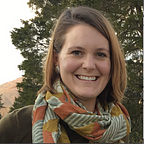Listening to the System
Moving past a focus on solutions to identify levers of social and environmental change
How to handle plastic waste is one of the defining challenges of our time. Especially in Southeast Asia, the rate of plastic ending up in the oceans is staggering, as are the resulting impacts on sea life and public health.
Living in Bangkok, you can’t help but notice just how prevalent single-use plastic is in the everyday experience. On average, residents use eight plastic bags per day. And, the megacity has no official, government-sponsored, recycling program to account for plastic and other recoverable waste. However, this doesn’t mean recycling and recovery of waste materials isn’t happening at all.
A small and dedicated group of local community members, academics, and entrepreneurs have been meeting regularly over the past two months as part of the Circular Design Lab (CDL) to map the waste management challenges in the city as well as co-create solutions. The CDL started as part of a global team-of-teams coordinated by the Presencing Institute: globally, teams are simultaneously tackling social challenges using collective systems mapping and design processes. Here in Bangkok, the CDL team is following a curriculum with ideas adapted from frameworks in use by Theory U and CoLab’s “Field Guide to Systemic Design,” as well as ones developed by the team.
The Circular Design Lab focuses on process, emphasizing that how you approach the problem-solving itself is one of the most important factors in determining whether the outcome will contribute towards a better future state. Social and environmental systems are large and infinitely complex, resulting in “messy” problems that don’t necessarily have clear solutions.
Through a series of four workshops, CDL participants gain the process tools to understand these messy problems and identify entry points where they can effect change. They engage in listening and empathy exercises, learn techniques of ethnographic observation and systems mapping, and build their rapid experimentation skills while bringing together their collective intellectual and experiential capital to create viable ideas for systems improvements.
How does this all work in practice?
Joining the group, I realized that I had many assumptions about what recycling does — or doesn’t — happen in Bangkok. Currently, we are halfway through the four workshop series, and my understanding of the recycling system and its challenges has been opened wide.
From the start, I’ve been a part of one of five teams, each tackling a different facet of waste management in Bangkok. Our team seeks to understand and innovate on the city’s recycling system, and our first step was to list down all of our assumptions based on our unique experiences. Around the table sat a student entrepreneur starting an on-demand recyclable collection business, a former management consultant, an international circular economy specialist, two other community members, and me — an American environmental consultant now calling Bangkok home. We all live and work in different industries and in different parts of the city and have much to learn from each other.
After listening to our own stories, we headed out into the neighborhood to observe and question our assumptions. Interviewing a variety of stakeholders, we were able to observe the large amount of recyclable collection that happens informally — not only where we were but across the city. Though there are still many questions remaining, we now feel like we have a better understanding of what is actually happening now, and what can potentially enhance those systems moving forward. There is no need to reinvent the wheel when the blueprint is right in front of us.
In our second meeting, we spent time refining our map of the system, as well as our individual and collective definitions of the problem at hand. Mapping the stakeholders and resource flows in one place helped us to understand what we had missed and what required further research. When we turned to problem definition, we once again each had very different ideas, and we worked iteratively to bring them together into one combined issue to tackle.
Moving forward
Instead of going in with an assumption-formed assertion of the problem and starting with solution generation, we have now spent two workshop sessions (and almost a month of time in-between) focused solely on understanding the problem at hand.
It’s critical when designing an intervention to address a systems-based challenge to ensure that the ways that you engage to change the system don’t have cascading, unintended, effects. What is a “solution” to one problem can often create problems somewhere else. Therefore, instead of focusing on clear-cut solutions, we are learning to identify lever points where we can work within the existing system to move towards an improved future state.
Though we don’t assume that we know the intricacies of the recycling system well enough to be experts, we certainly know more now than we did when we began. We’re able to tell the story of the system and the problems that exist because we have been listening — to each other and to our community. And, we’re able to understand that a system is greater than the sum of its parts.
The next step in the process is to move into co-creating ideas for system improvements and testing their feasibility. We are well-equipped to do so thanks to the time we’ve spent in problem definition.
So, how can a diverse group come together to catalyze social and environmental change? The key is in listening deeply — to each other, to the system you are trying to understand — and in taking the time to do so.
________________
While the Circular Design Lab focused on waste management concluded in May, 2019, those of us who participated and helped to organize the collaborative events are taking the ideas forward — both the innovations that emerged, and also reflections on the process of how groups can design for systems change. If you have thoughts to share for future Bangkok CDL iterations, I welcome them via twitter at @lmhammett.
